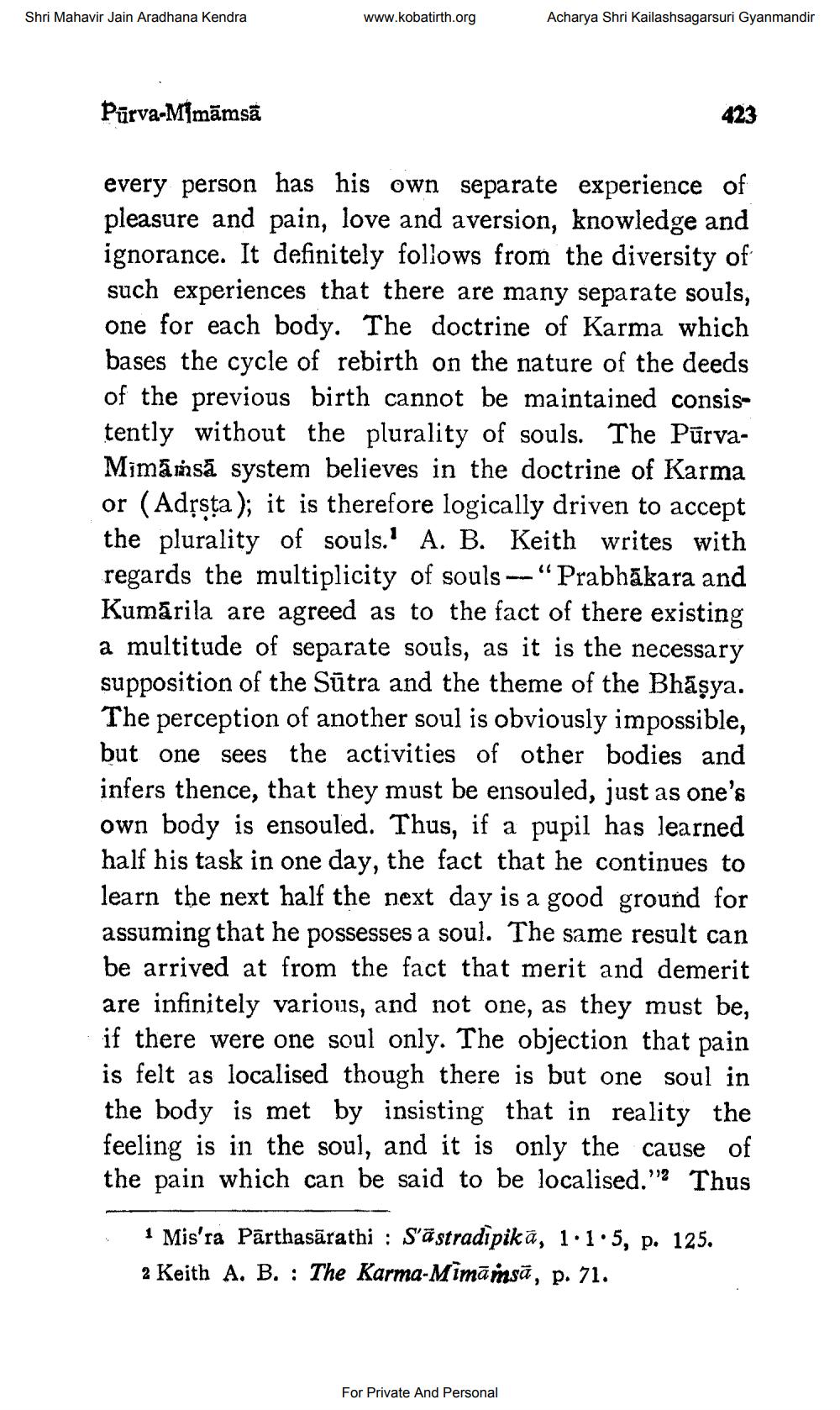________________
Shri Mahavir Jain Aradhana Kendra
www.kobatirth.org
Acharya Shri Kailashsagarsuri Gyanmandir
Pūrva-Msmāmsã
423
every person has his own separate experience of pleasure and pain, love and aversion, knowledge and ignorance. It definitely follows from the diversity of such experiences that there are many separate souls, one for each body. The doctrine of Karma which bases the cycle of rebirth on the nature of the deeds of the previous birth cannot be maintained consistently without the plurality of souls. The PūrvaMimāṁsā system believes in the doctrine of Karma or (Adssta); it is therefore logically driven to accept the plurality of souls.' A. B. Keith writes with regards the multiplicity of souls --"Prabhākara and Kumārila are agreed as to the fact of there existing a multitude of separate souls, as it is the necessary supposition of the Sūtra and the theme of the Bhāşya. The perception of another soul is obviously impossible, but one sees the activities of other bodies and infers thence, that they must be ensouled, just as one's own body is ensouled. Thus, if a pupil has learned half his task in one day, the fact that he continues to learn the next half the next day is a good ground for assuming that he possesses a soul. The same result can be arrived at from the fact that merit and demerit are infinitely various, and not one, as they must be, if there were one soul only. The objection that pain is felt as localised though there is but one soul in the body is met by insisting that in reality the feeling is in the soul, and it is only the cause of the pain which can be said to be localised." Thus
1 Mis'ra Pārthasārathi : S'ästradipikā, 1.1.5, p. 125. 2 Keith A. B. : The Karma-Mimāmsā, p. 71.
For Private And Personal




